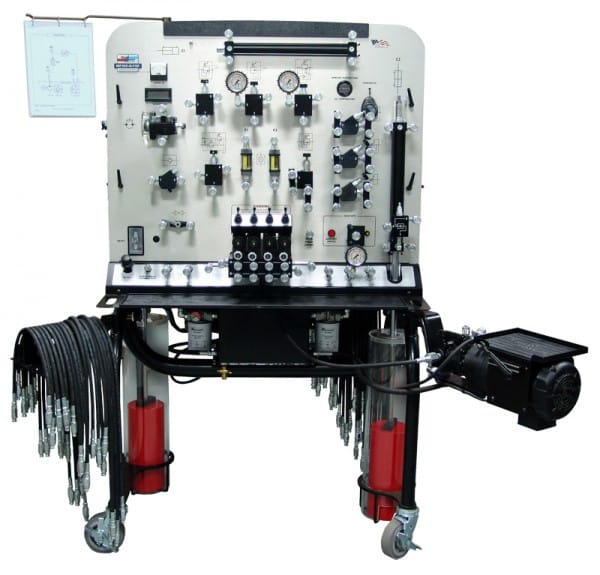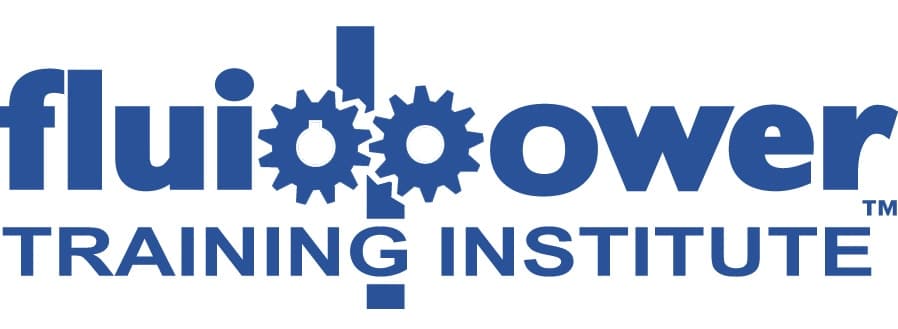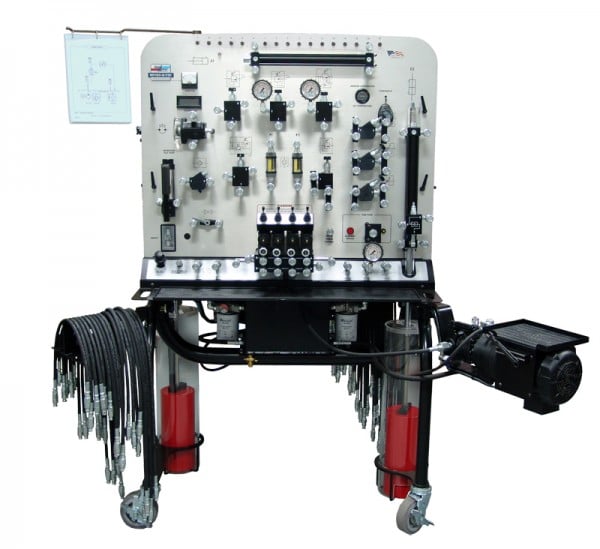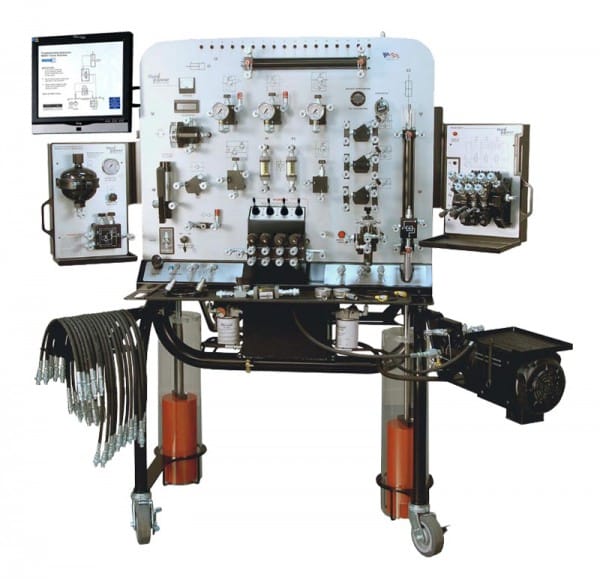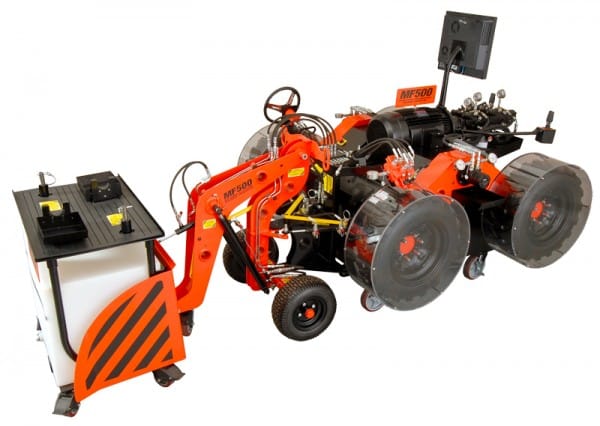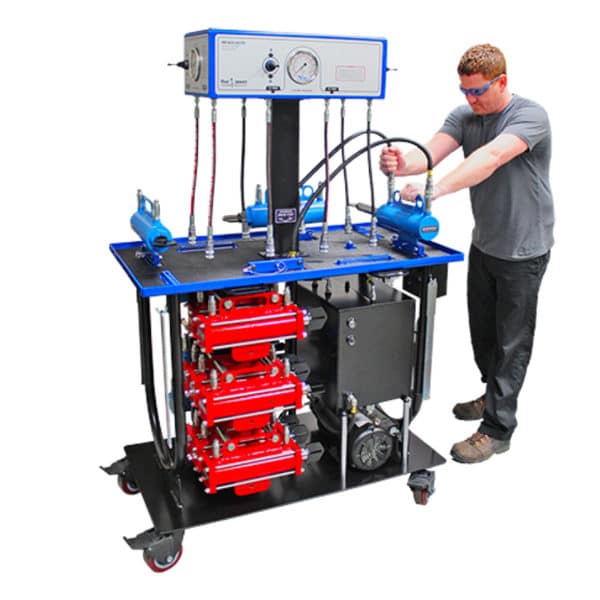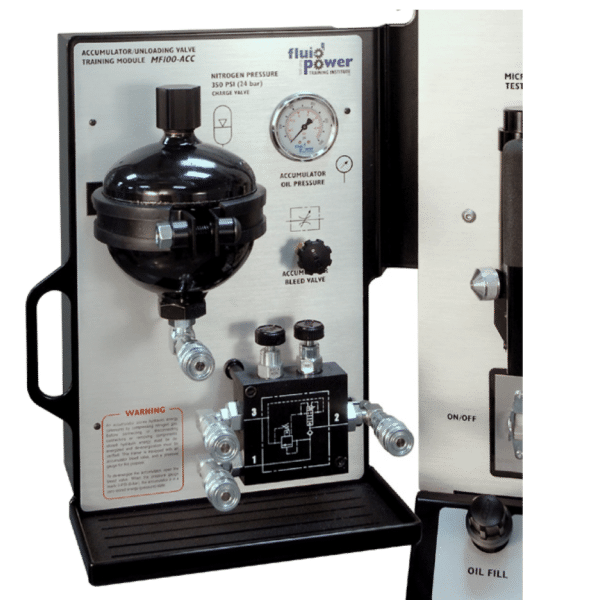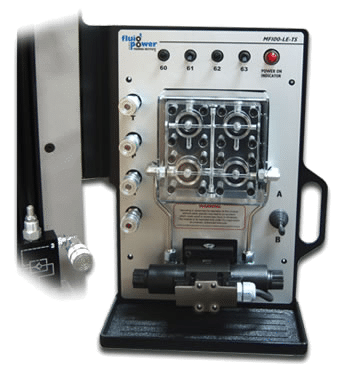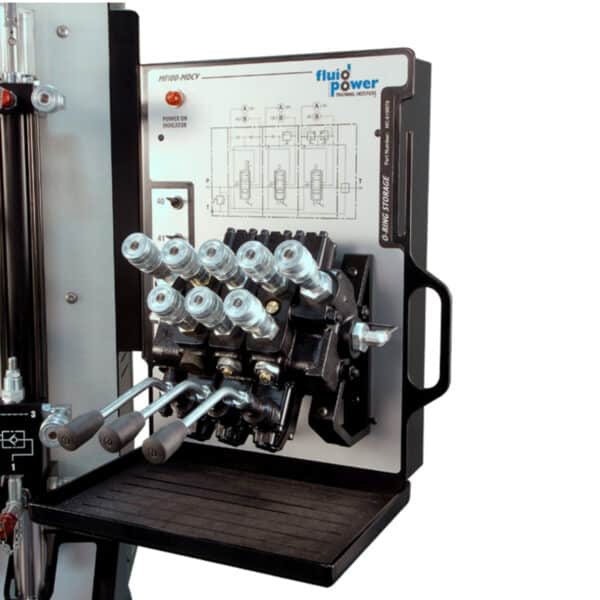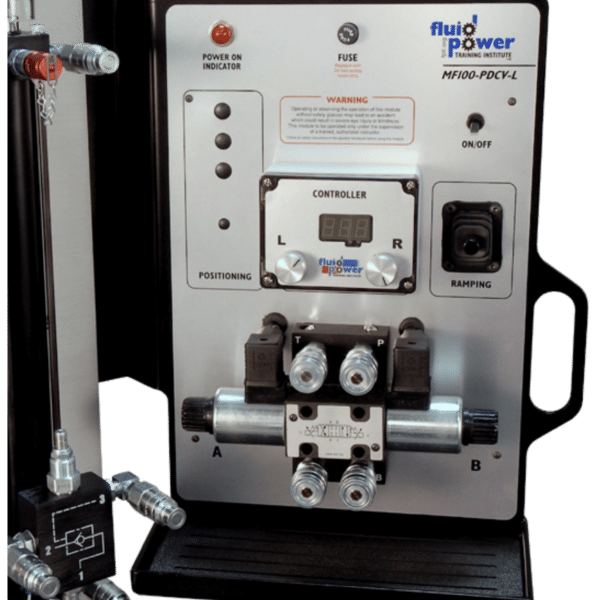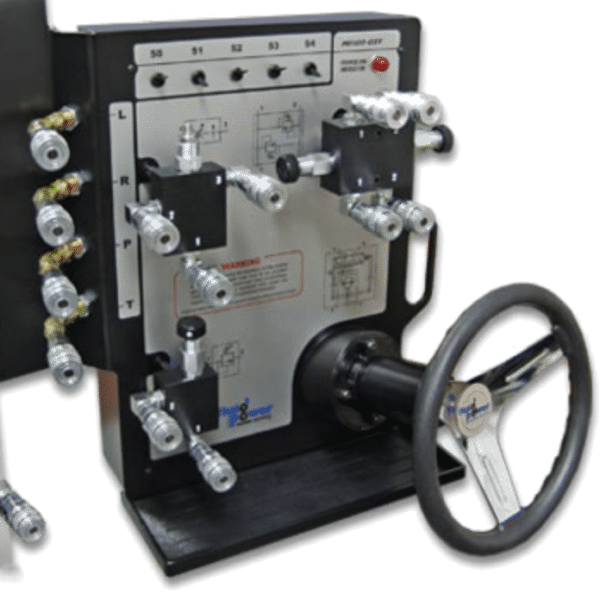Automotive Technology
Explore Toolkit’s solutions for Automotive Technology Training Systems for modern automotive classrooms.
The ever-increasing quantity of technologies found in modern vehicles, combined with the ever-increasing complexity of electronic systems and state-of-the-art technologies such as Advanced Driver Assistance Systems (ADAS), Smart Sensors, Autonomous Driving systems, Interconnected Systems, Computerized Diagnostic and Scan Tools, Plug-In Electric Vehicle and Hybrid technologies, etc. creates an increased need for automotive training to be done with modern, state-of-the-art technologies and training systems.
Modern Automotive Training Labs should keep pace with modern automotive vehicles on the road.
Automotive service technicians and mechanics can be expected to:
- Identify problems, often by using computerized diagnostic equipment
- Plan work procedures, using charts, technical manuals, and experience
- Test parts and systems to ensure that they work properly
- Follow checklists to ensure that all critical parts are examined
- Perform basic care and maintenance, including changing oil, checking fluid levels, and rotating tires
- Repair or replace worn parts, such as brake pads, wheel bearings, and sensors
- Perform repairs to manufacturer and customer specifications
- Explain automotive problems and repairs to clients
Although service technicians work on traditional mechanical systems, such as engines, transmissions, and drivebelts, they also must be familiar with a growing number of electronic systems. Braking, transmission, and steering systems, for example, are controlled primarily by computers and electronic components.
Other integrated electronic systems, such as accident-avoidance sensors, are becoming common as well. In addition, a growing number of technicians are required to work on vehicles that use electricity or alternative fuels, such as ethanol.
Service technicians use many different tools, including computerized diagnostic tools and power tools such as pneumatic wrenches, lathes, welding torches, and jacks and hoists, in addition to common hand tools like wrenches, pliers, and sockets.
Whether for transportation and logistics classrooms, agriculture and mechanics or manufacturing classrooms, Toolkit has the Automotive Service Technology Training Systems and ASE Certification-aligned solutions to fit your area’s industry training needs.
Job Outlook: 69,000 new jobs per year
Average Pay: $46,890
Shop by ASE Category
Showing all 11 results
-
MF102 Hydraulics Training System
TOOLKIT is proud to offer the flagship hydraulics training system from the Fluid Power Training Institute (MF102-H), which includes 40-hours of possible training in hydraulics.
From foundational hydraulics skills and safety to advanced hydraulic concepts, this system features unparalleled design, craftsmanship, ergonomics, and robustness perfect for any classroom or training program. Featuring all industrial components, this system is made and manufactured in the USA.
Single-Sided or Double-Sided
-
MF102 Hydraulics Trainer + Troubleshooting
We are proud to bring this incredible hydraulics training system to schools whereby students can get invaluable hands-on training in the fundamentals of Hydraulics, Hydraulics Safety, Advanced Hydraulics, and now the added training benefit of Troubleshooting capabilities.
The MF102-H-TS includes 40-hours of possible training on the base model PLUS an additional 40-hours of training in troubleshooting possible. Unparalleled in terms of craftsmanship and curriculum, this trainer is proudly designed and built in the USA.
Available Single-Sided or Double-Sided
-
MF102 Hydraulics Trainer with Troubleshooting and Touchscreen
The best hydraulics training system on the market keeps getting better! Fluid Power Training Institute’s MF102-H-TSE Hydraulics Training System with Troubleshooting now includes a built-in Touchscreen Monitor and PC for practical lab activities, troubleshooting, and student tracking!
Students get in-depth, hands-on training in the fundamentals of hydraulics, advanced hydraulics, troubleshooting, safety, and more with over 40 hours of curriculum in the base system, additional 40 hours in troubleshooting, and more with additional options.
With the built-in monitor, instructors can automatically track student activity to determine whether they truly understand how to effectively diagnose hydraulics problems or are just “replacing parts” at random!
Available in single-sided or double-sided systems.
-
Hydrostatic Transmission + Driving Simulator
The MF500-HT-TSE is an instructor’s “dream-come-true” with respect to teaching state-of-the-art, electronically-controlled hydrostatic transmission systems – hands-on. It can even be driven as if it were on a construction site, in real-time!
Driving a skid-steer loader around a construction site and operating the MF500-HT-TSE in the lab amounts to the same thing – without the hazards!
Designed for instructors who want to teach hydrostatic transmission and steering systems with the same components found in popular front-end loaders but without the safety hazards and physical limitations of operating a loaded, faulty skidsteer in a shop full of students.
Teach basic concepts to advanced applications + troubleshooting in a classroom-friendly manner where students can gather around to see real-time symptoms of faults as you drive the simulator through a variety of scenarios.
-
Hydraulic Cylinder Training System
The MF400-HCTS is designed to help instructors teach and students learn how to safely and correctly perform the following skills:
• Overhaul a hydraulic cylinder.
• Identify and use the tools needed to overhaul a hydraulic cylinder.
• Inspect the components in a hydraulic cylinder to determine the root cause of a failure.
• Replace piston and gland seals.
• Test a hydraulic cylinder.
• Air bleed a hydraulic cylinder. -
Industrial / Mobile Accumulator with Differential Pressure Unloading Valve
The MF100-ACC module is an add-on for the MF-102 Hydraulic Training Systems and is designed to help instructors teach and students learn accumulators, accumulator applications, how to safely and correctly perform accumulator gas charging procedures, and applications for differential pressure unloading valves.
The MF100-ACC consists of the following components:
- Accumulator
- Differential pressure unloading valve
- Pressure gauge
- Stored energy safety bleed-off valve
- Gas charging gauge and hose assembly
- Gas bottle pressure regulator recommended
-
Logic Element with Diagnostic Capability
There are some things that no matter how much you try to explain, or how many graphics you use, some students just don’t get it. One of those things has got to be logic valves.
Have you ever asked yourself, “if only I had a fully functional, four logic valve that was completely transparent”? Well, now you do!
Introducing the easy to explain, and just as easy to learn, plug-and-play logic valve module with auto-fault and troubleshooting capability: the MF100-LE-TS. A plug-and-play add-on for the MF-102 Series Hydraulic Training Systems.
-
3-Section Mobile Directional Control Valve
The MF100-MDCV is an actual directional valve assembly that is commonly used on machinery such as front-end loaders and forklifts.
With the MF100-MDCV-TS students will learn to pressure/leak test individual sections with the objective of determining, with pinpoint precision, the condition of a given port.
A plug-and-play add-on for the MF-102 Series Hydraulic Training Systems.
-
Proportional Directional / Flow Control Valve
Combined with the components on the MF102 series training systems, the Proportional Directional/Flow Control Valve Module will allow instructors to teach, and students to learn, all facets of Proportional Directional/Flow Control Valve operation and circuit application, and amplifier parameter adjustment.
The MF100-PDCV module consists of the following components:
- Two-position, 4-way, proportional solenoid controlled closed-center directional/flow control valve.
- Amplifier.
- Joystick controller (linear potentiometer) – optional.
- Aluminum, self-contained unit finished with a durable powder-coat with removable steel back cover.
- Front-plate with printed identification symbols and color-coding.
- Appropriate warnings and cautions.
-
Industrial / Mobile Directional Control Valve
The MF100-SVM is the actual stacked valve assembly that is commonly used in hydraulic systems on modern production, manufacturing and mobile machinery.
The MF100-SVM consists of the following components:
- Directional control valve, 03 size, three-position, four-way, solenoid-operated,
spring-centered, with float-center. - Sub-plate with quick connect/disconnect valves.
- Circuit module 1 – Main pressure relief valve, adjustable.
- Circuit module 2 – Cylinder port relief valve, adjustable.
- Circuit module 3 – Dual, flow control valves, adjustable.
- Circuit module 4 – Dual, pilot-operated (pilot-to-close) check valves.
- Directional control valve, 03 size, three-position, four-way, solenoid-operated,
-
Steering Valve (Orbitrol)
We wholeheartedly agree that the only way to teach and learn hydraulic steering systems with a measurable degree of success is to park a front-end loader in the classroom – hardly practical due to important things like safety, space, and cost.
You can always depend on the professionals at FPTI™ to develop a safe and practical alternative. Introducing the MF100-OSV – a fully-functional, plug-and-play, hydraulic steering system that is absolutely identical, in every respect, to the type found on all articulated machines such as front-end loaders and off-highway trucks.
The “TS” model makes it possible to generate the identical wear-related faults steering components experience in the real world for a real world learning experience.

